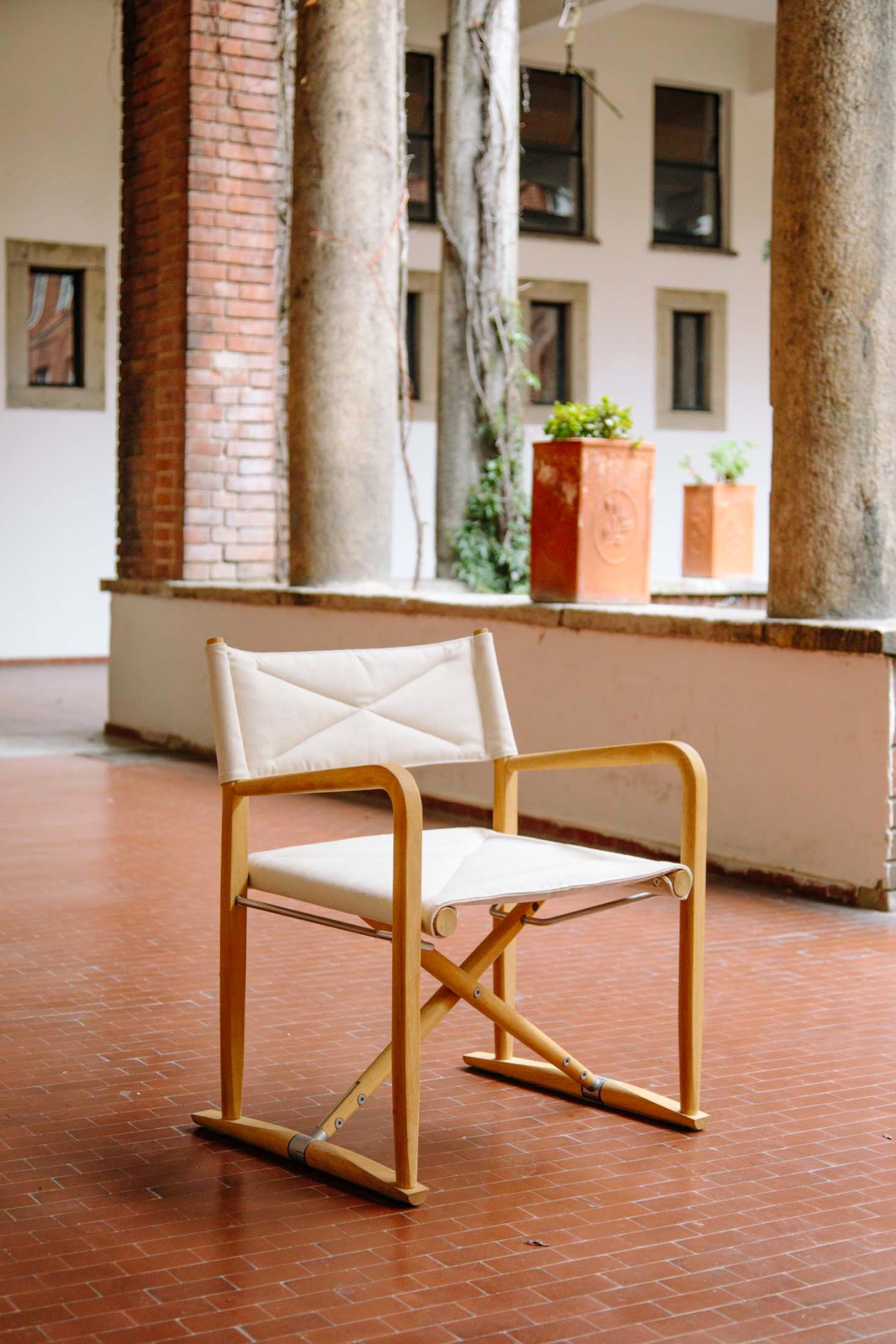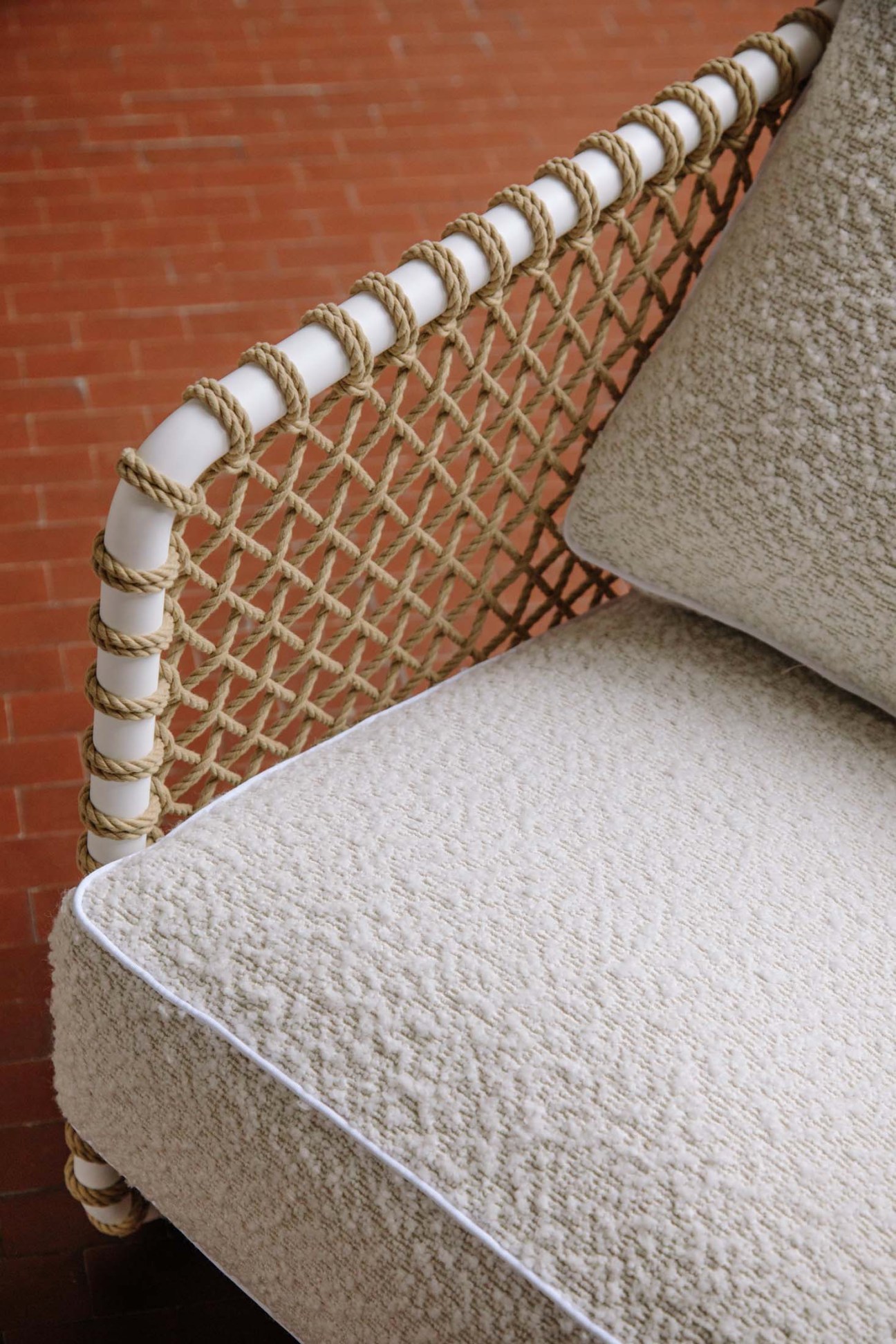How Flexform has funded the renovation of a cloister in a former convent
Meet the furniture brand seeking divine intervention in its design work.
Milan’s Via della Moscova is home to many elegant retailers, including Italian luxury furniture brand Flexform. But walk further down the road and you will come across the Santa Maria degli Angeli church, a hidden jewel in the heart of town – and it’s here, in a place not typically open to the public, that the brand will also be present during Milan Design Week.
The site, first built in the 1500s as a Franciscan convent, has experienced multiple transformations over the years, including being a military courthouse in the 19th century. After the main building was almost completely demolished during the First World War, the complex was redesigned by Milanese architect Giovanni Muzio in 1939. Part of the novecento artistic movement, Muzio was inspired by simple lines, which were in harmony with the changing landscape of the city in the middle of the 20th century. As a result of this outlook, the architect created a single courtyard framed by two old cloisters (which survived bombings). Today greenery grows freely over the columns. It’s this unique architectural story that attracted Flexform to the location. “It is precisely in this balance between simplicity and the sophisticated construction of space that Flexform finds its own reflection,” explains Saul Galimberti, director of the Flexform Design Center, as he walks Monocle along the brick-clad galleries of the cloister. “As in the architecture of Muzio, in Flexform furniture there is nothing in excess, nothing that does not serve a specific purpose. Every line, every material is designed for long-lasting durability, to move through trends and fashions without being subjected to them.”


Muzio’s style also speaks closely to the design philosophy of architect Antonio Citterio, who drew Flexform’s latest outdoor collection. This includes two outdoor armchairs and a daybed for the Oasis collection, made with woven cord-and-metal combinations and mesh-like patterns. “Antonio Citterio knows how to make the most of our know-how and pushes us towards making the most of the high level of craftsmanship we are capable of, whether it is for indoor or outdoor products,” adds Galimberti. “All of the new outdoor designs show this marriage between tradition and innovation.”
Citterio has had several of his pieces photographed in spaces designed by Muzio in the past, including Flexform’s Max sofa in the Palazzo dell’Arte, making this collaboration a seemingly perfect match. But the poor current conditions of the cloisters (it seems it’s always in the wars) meant that it was a challenging proposition for Flexform to use it as a setting to welcome guests during Milan Design Week. And so the firm took on the challenge of funding the renovations of the Santa Maria degli Angeli cloister, which will soon allow visitors.
For Galimberti, this was part of the brand’s social responsibility and a way to give back to a city that inspires them. “We aim to leave the cloister in better condition compared to our first visit,” he says. “We feel a responsibility as entrepreneurs to take practical steps to contribute to the welfare of the city.”
Piazza Sant’ Angelo, 2; flexform.it


